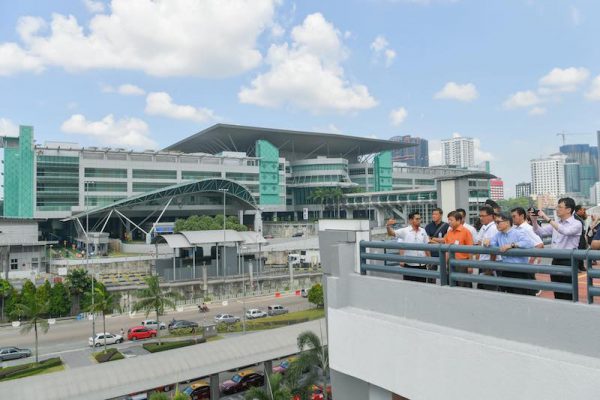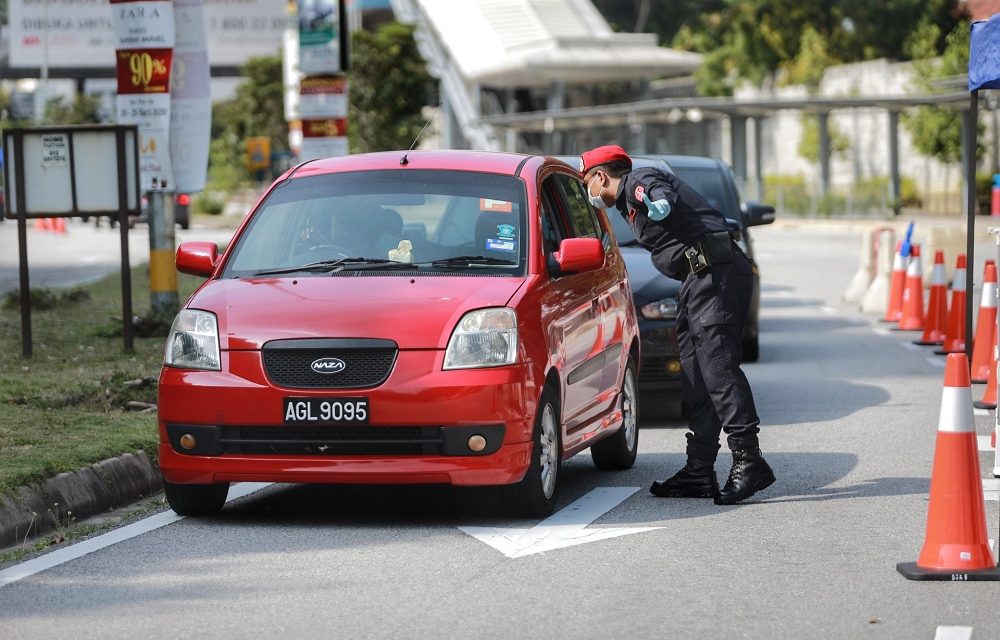Private vehicles allowed to carry four family members during CMCO
The government has decided to allow private vehicles to carry four persons on the condition they are from the same house and family following the implementation of the conditional movement control order (CMCO) from tomorrow. Senior Minister (Security Cluster) Datuk Seri Ismail Sabri Yaakob said the approval was given as the issue of social distancing did not involve family members who have been living in the same house. Touching on public transport operation, Ismail Sabri said commuters and operators would have to abide by the guidelines set by the government. For public transport, the total number of passengers would be limited to half of the actual capacity. (Malay Mail)
HP Moratorium interest rate cannot be higher than the original contract – BNM
Any additional interest that some banks may charge on the deferred payment cannot be higher than the original hire-purchase contract signed, Bank Negara Malaysia (BNM) said. BNM reiterated that, as a regulator, it has from the very beginning indicated that there will be accrued interest or profit with regard to the six-month moratorium. “Most important is the additional interest rate that some banks may charge, we have clearly stated that it cannot be higher than the original hire-purchase contract (signed with the borrower),” BNM Prudential Financial Policy director Cindy Siah Hooi Hoon said. So, they cannot go beyond that, she said, adding that BNM has already informed the banking institutions about it. Acknowledging the communication could have been made much clearer, Deputy Governor Jessica Chew said under the HP Act, any deferment would require all the steps that were being spelled out now. (Bernama)
‘Malaysia facing worst economic recession in its history’
Malaysia is weathering its worst economic recession in its history just as other developed nations are facing deep downturns due to the Covid-19 pandemic and MCO. Finance Minister Tengku Datuk Seri Zafrul Tengku Abdul Aziz said the recession has not only affected the nation’s GDP but also contributed towards a rise in unemployment. He revealed that the economic recession has impacted the nation’s income, with the country hemorrhaging RM2.4 billion daily. Tengku Zafrul added that in the first two weeks of the MCO, the country’s economic growth, which was previously at 2%, declined to 0.5%; and within the five weeks of the MCO being implemented, the GDP is expected to decline between 3-4%. He also said the government will announce an economic recovery package by the end of this month and the budget will be tabled in November. (NST Online)
Penang to implement PGRS instead of CMCO
The Penang government has announced that the Conditional Movement Control Order (CMCO) will not be implemented tomorrow as announced by Putrajaya earlier this week. Chief Minister Chow Kon Yew said that instead, Penang will implement the Penang Gradual Recovery Strategy (PGRS), which will reopen sectors of the economy in stages from May 8 to 13. He said that the existing MCO would still be in place till then. PGRS has been divided into three phases – Phase 1 (Preparation Phase) between May 4 to 7, Phase 2 (Familiarisation Phase) between May 8 to 12 when only certain sectors and offices will be allowed to open, and Phase 3 (Reopening Phase) from May 13 onwards which will see the reopening of remaining sectors and companies. “The four-day period is for the state government to come up with comprehensive guidelines especially on enforcement aspects while also giving time to employers, employees, parents, and others to plan,” he added. Chow added that the education sector and social care services such as nurseries will not be allowed to operate for now. (NST Online)
Singapore and Malaysia delay deal on rail project to end-July
Malaysia and Singapore have agreed to delay finalising an agreement on a US$736mil train project connecting Malaysia’s southern state of Johor with the city-state to the end of July, their transport ministries said on Sunday (May 3). The countries agreed to extend the deadline for three months to July 31 after talks on the scheme, known as the Rapid Transit System (RTS) Link, were hit by curbs on movement to stem the coronavirus. In a separate statement, Singapore’s transport ministry said it hoped to wrap up discussions with Malaysia soon, adding that it would be the final extension. The RTS Link project was suspended last year after Malaysia’s then-government, which came into power in 2018, pledged to tighten finances and review major deals. The project cost was cut by a third from about 4.93 billion ringgit (US$1.15 billion) to 3.16 billion ringgit (US$736.08 million) after discussions between both countries. (The Star Online)






